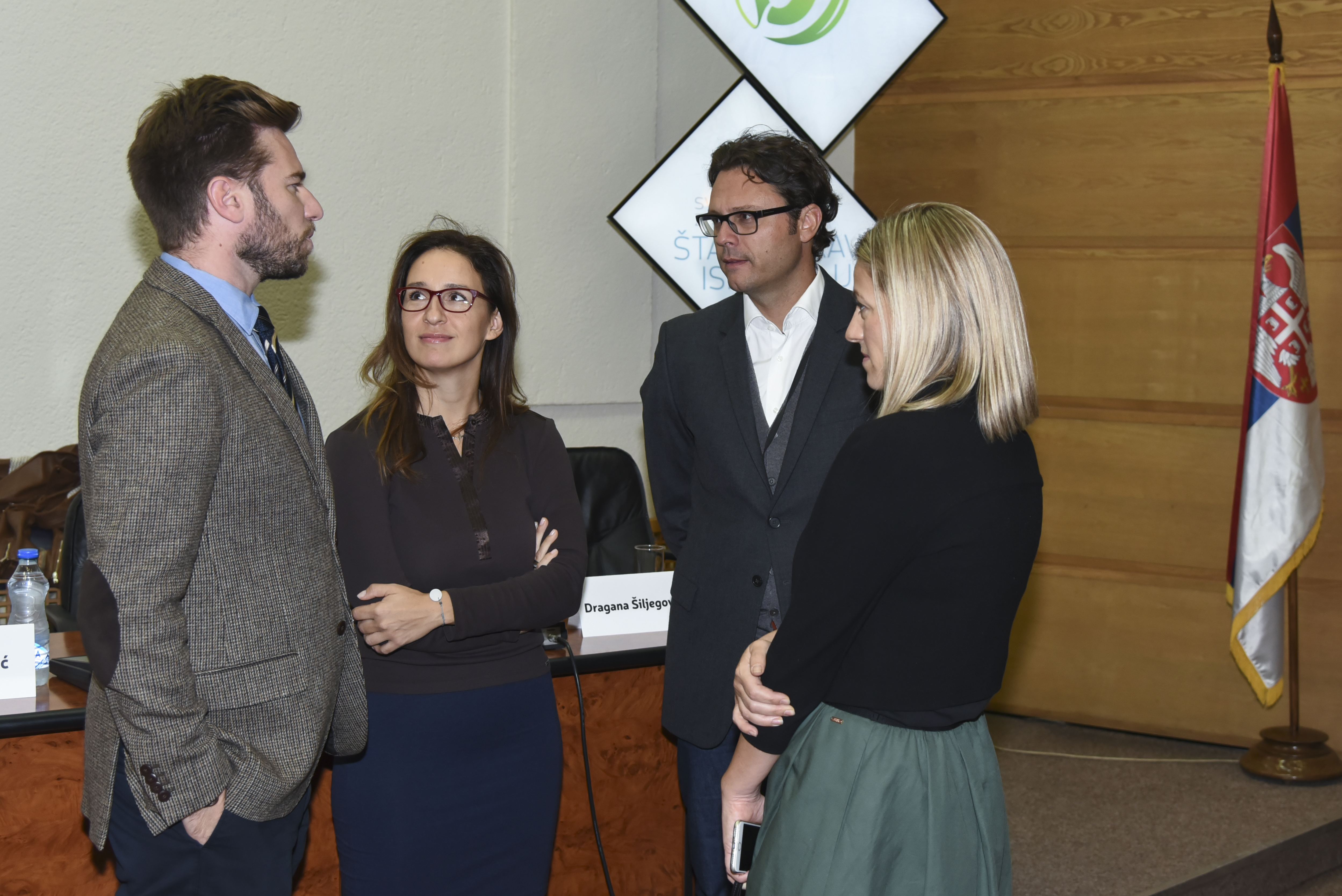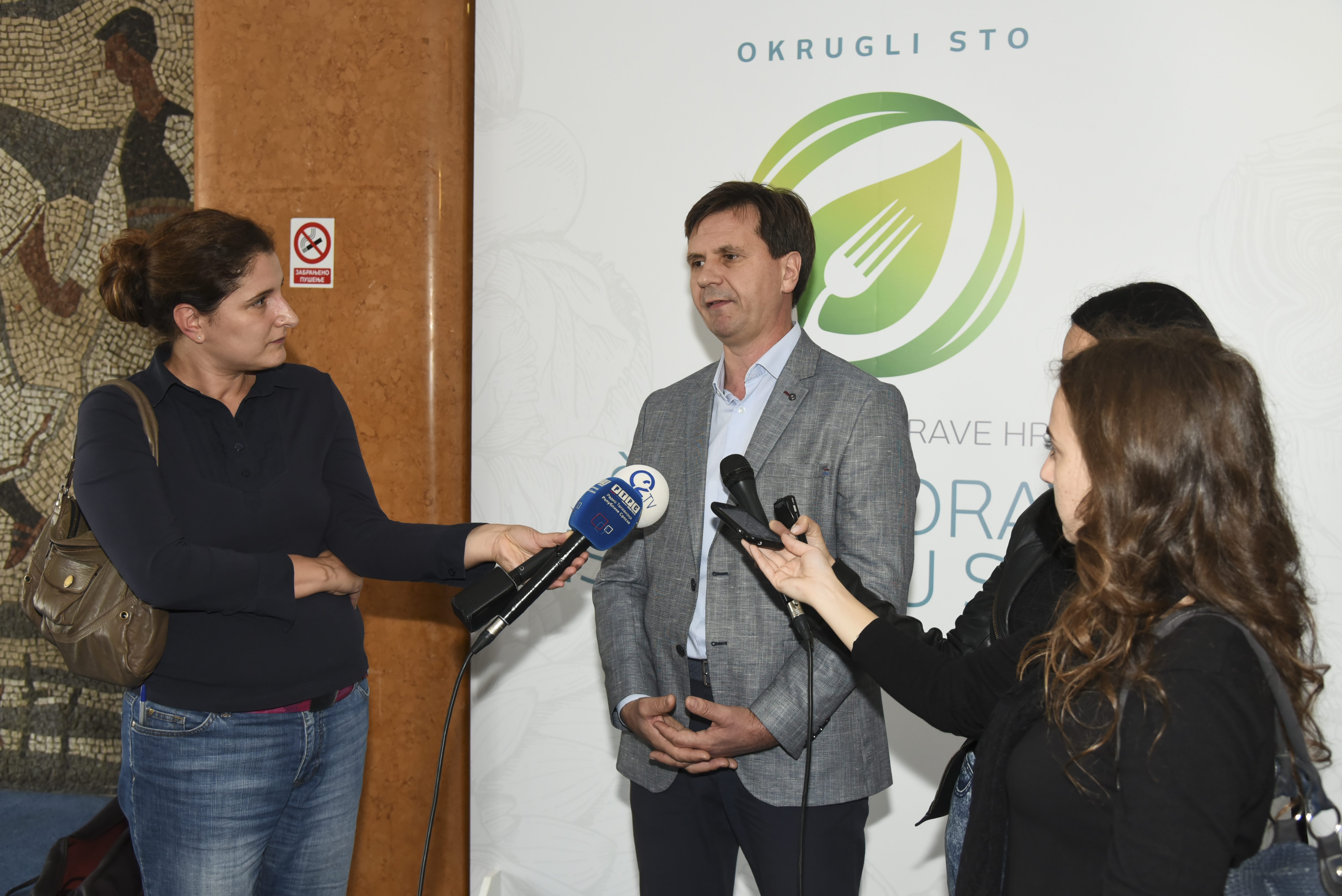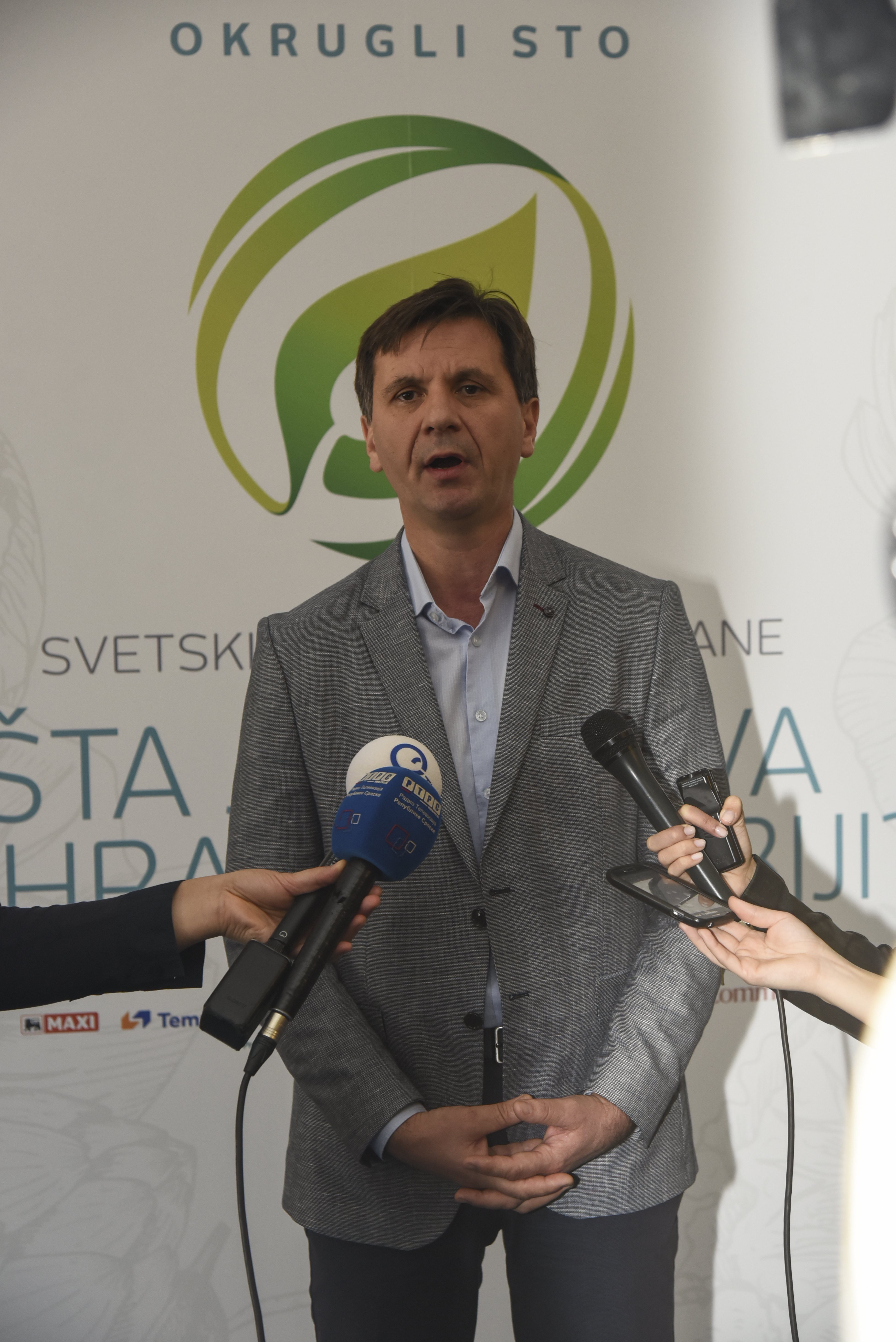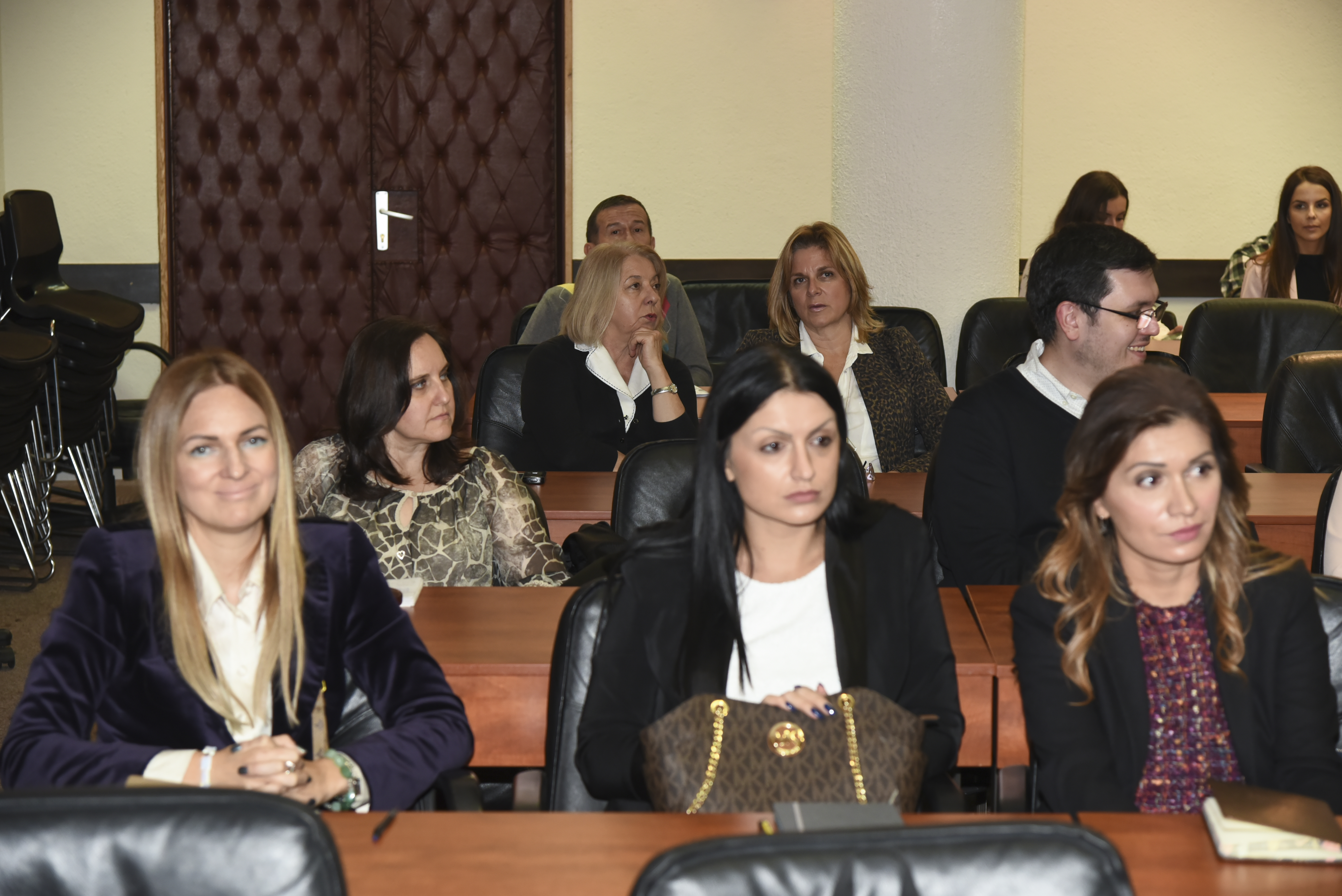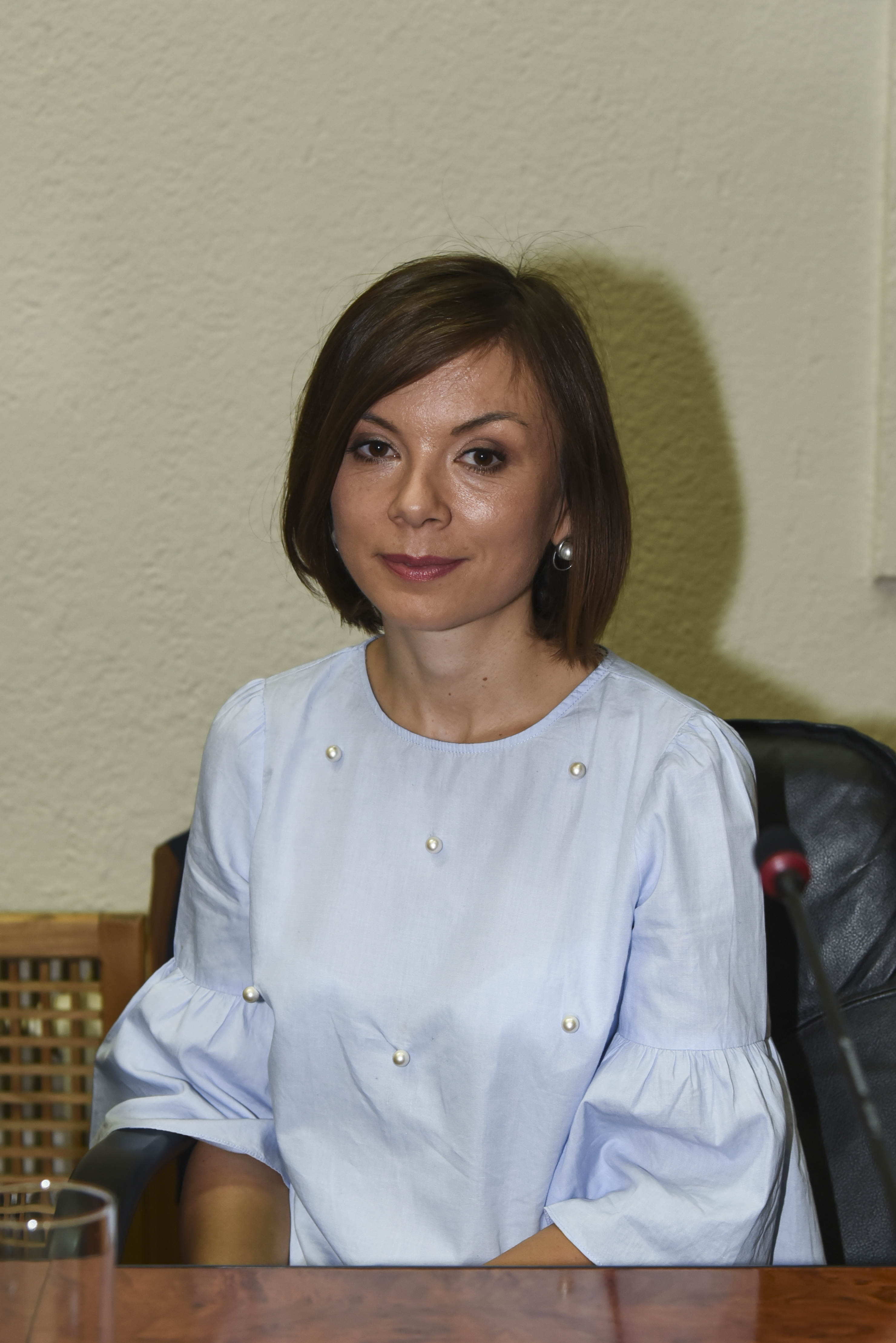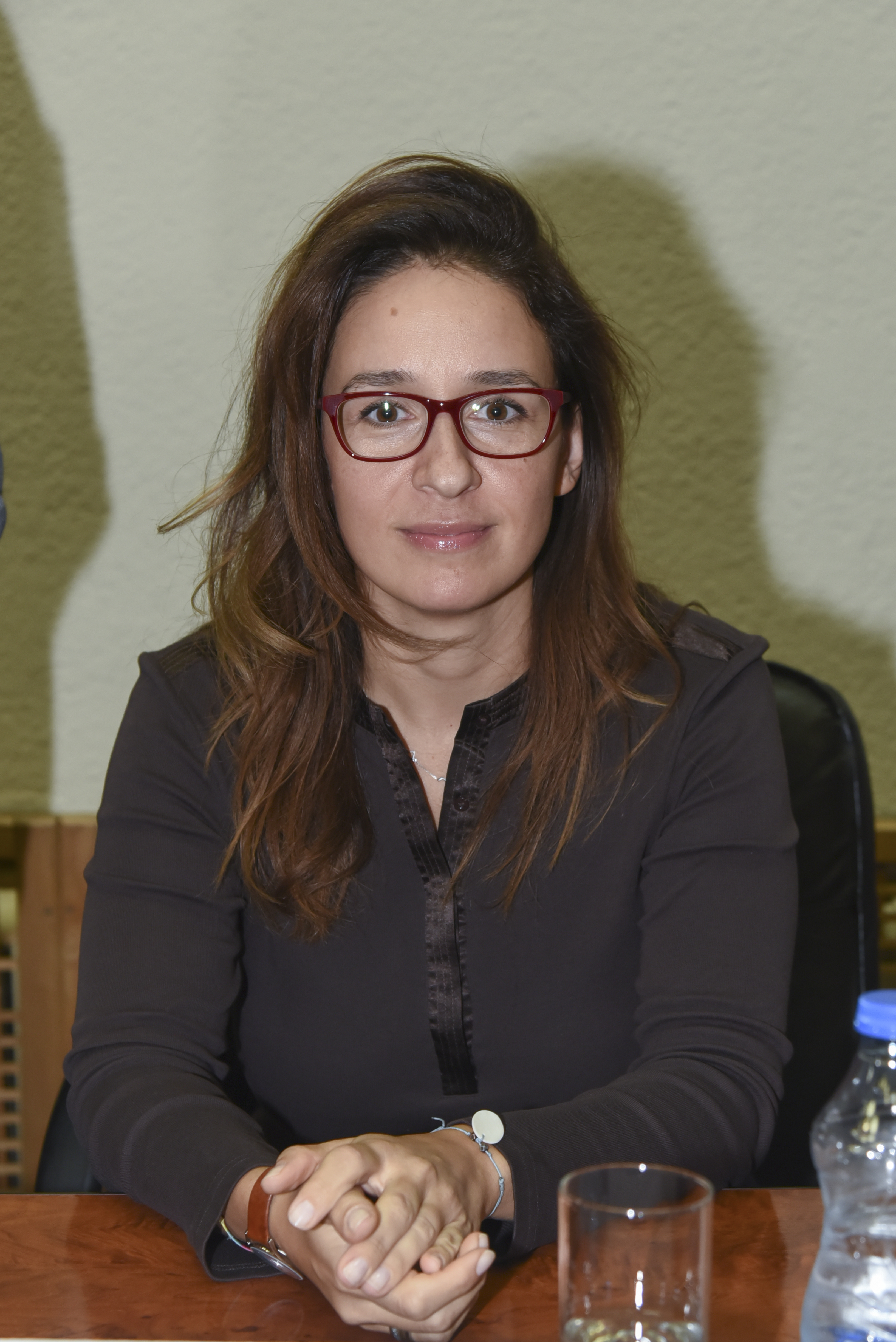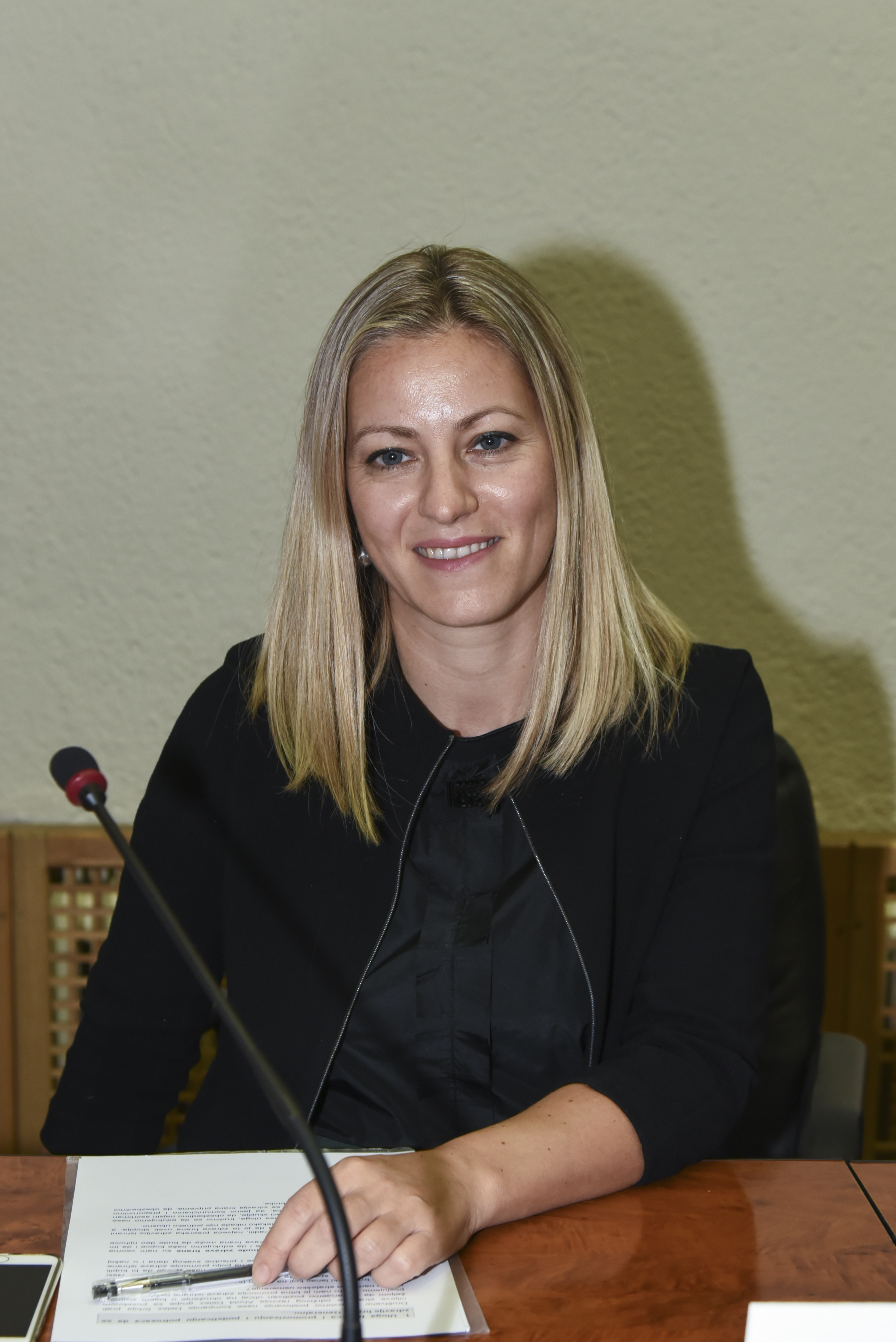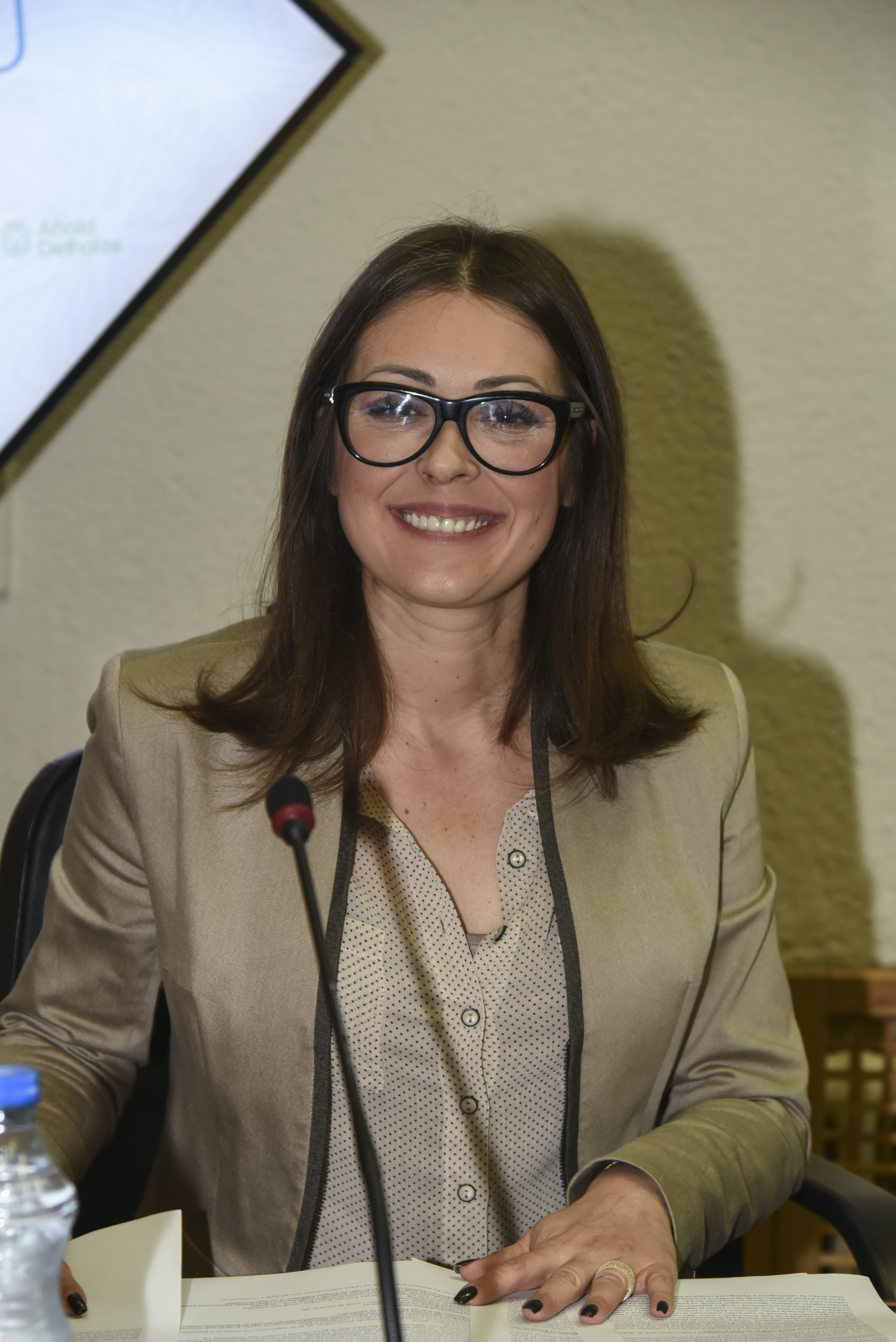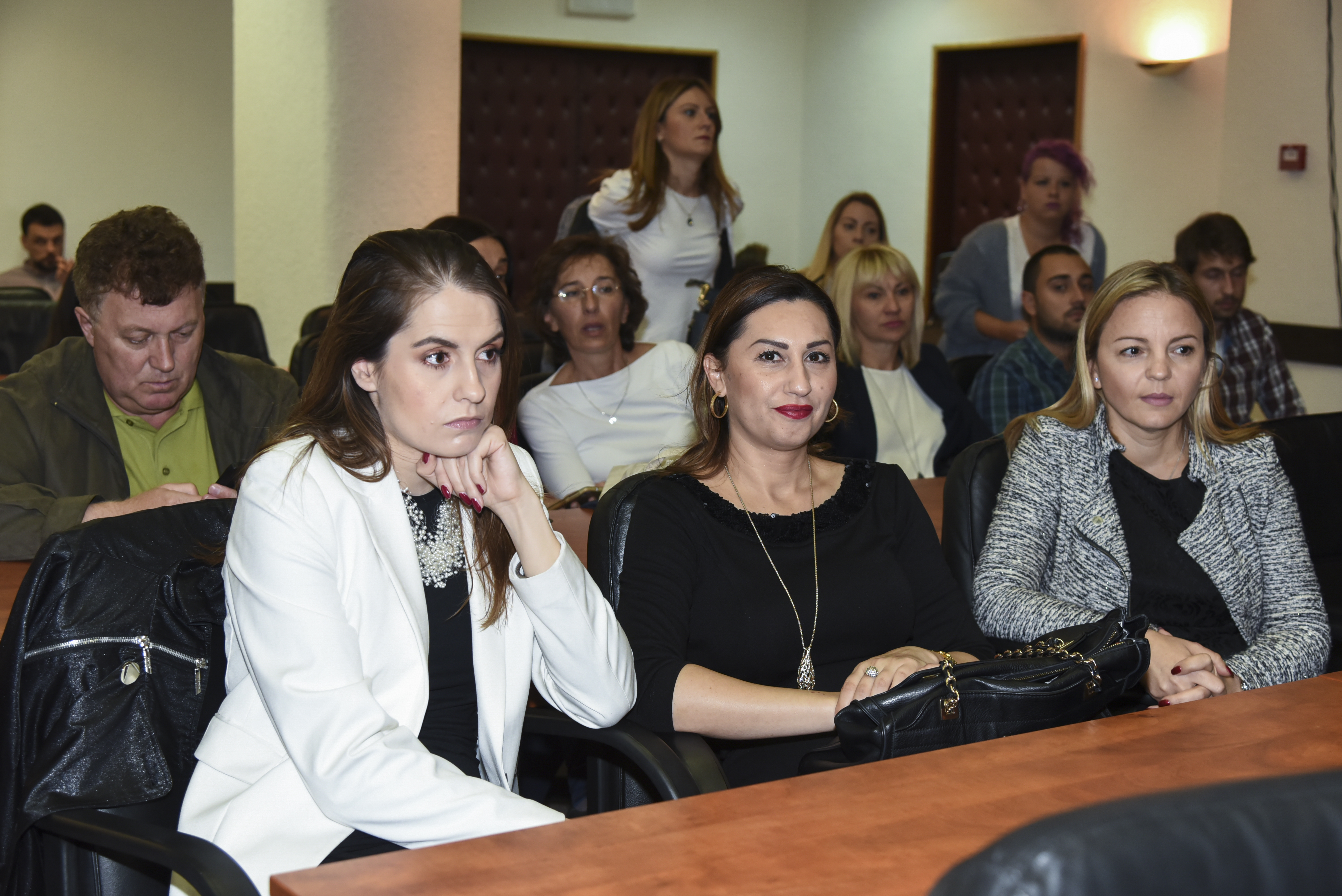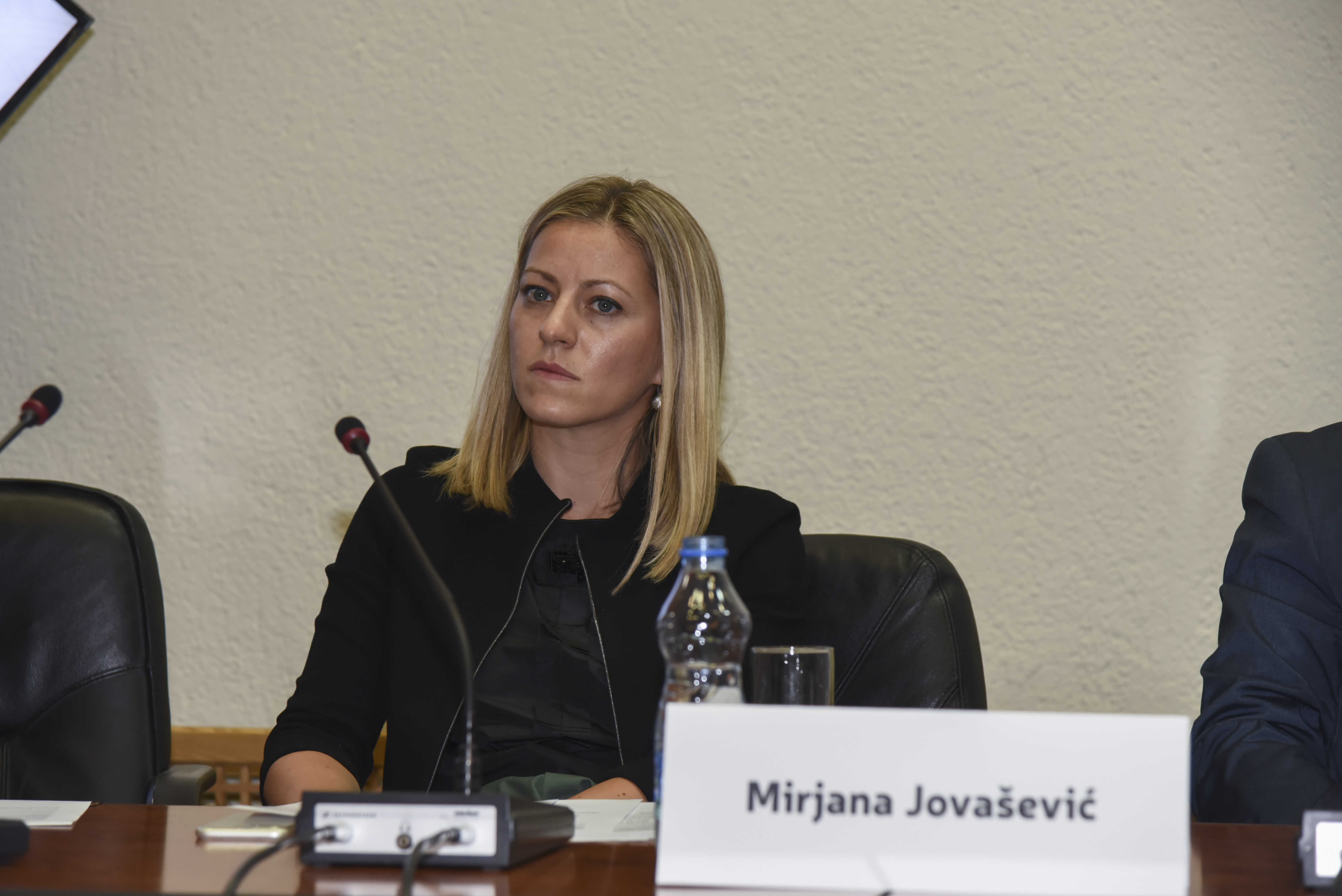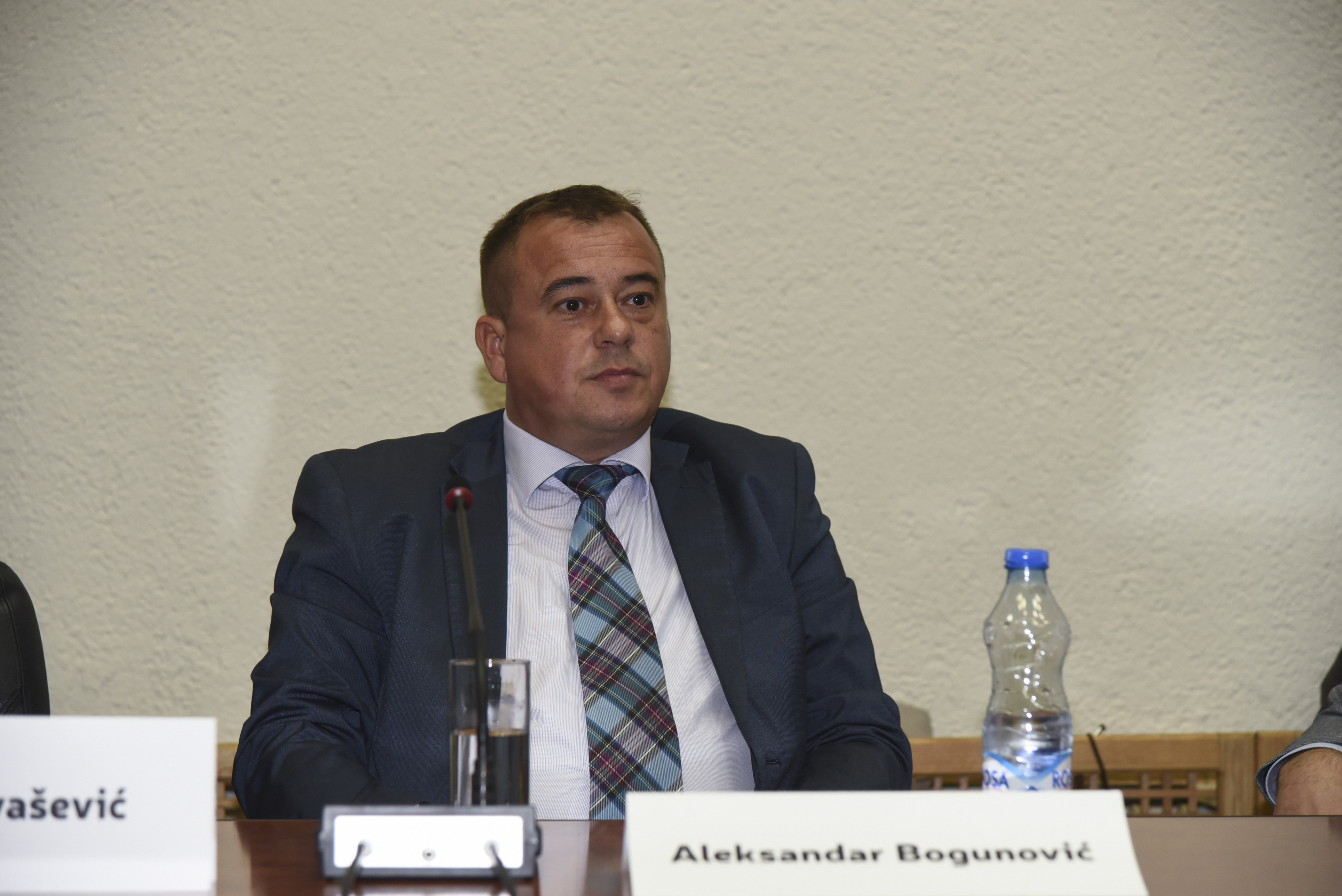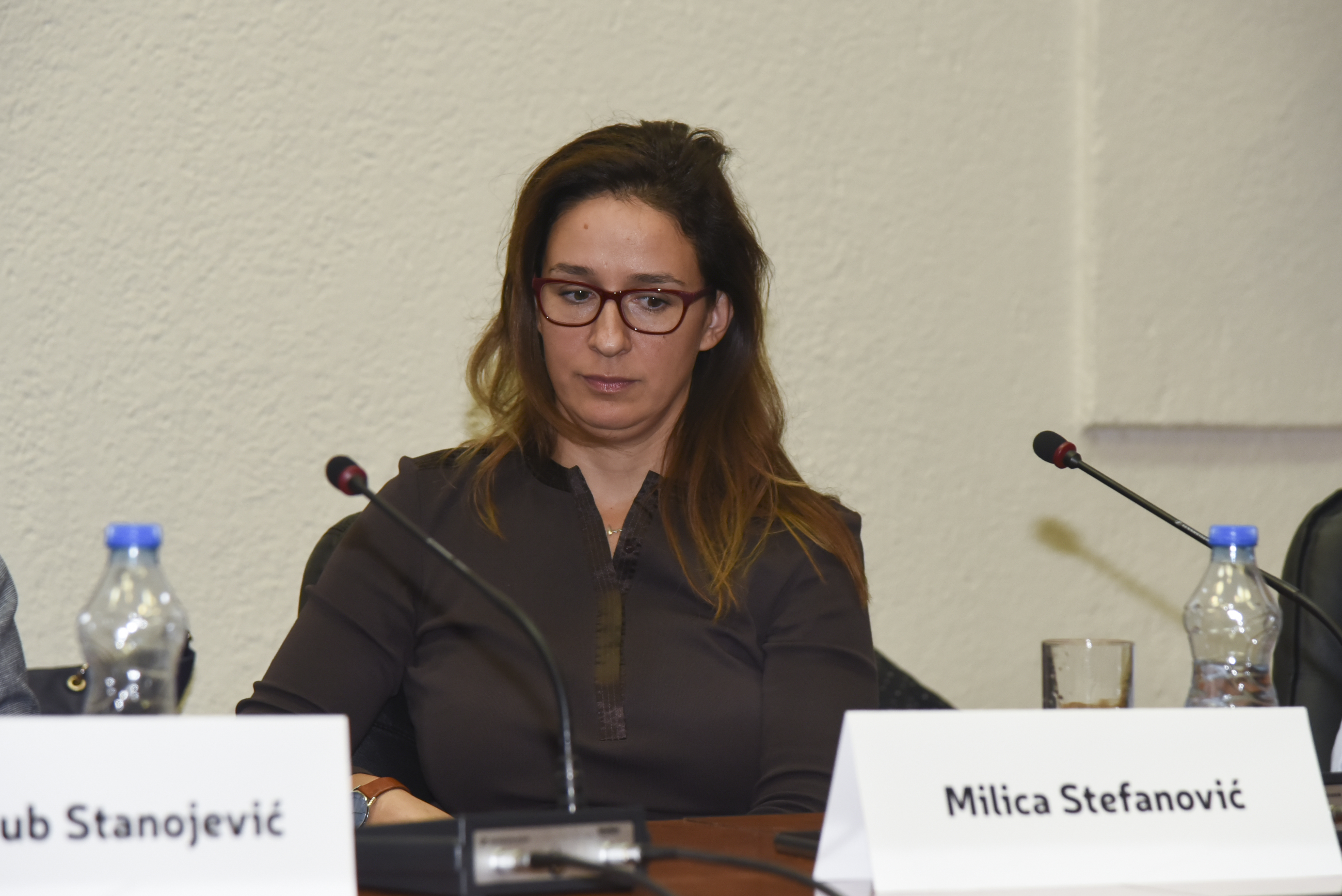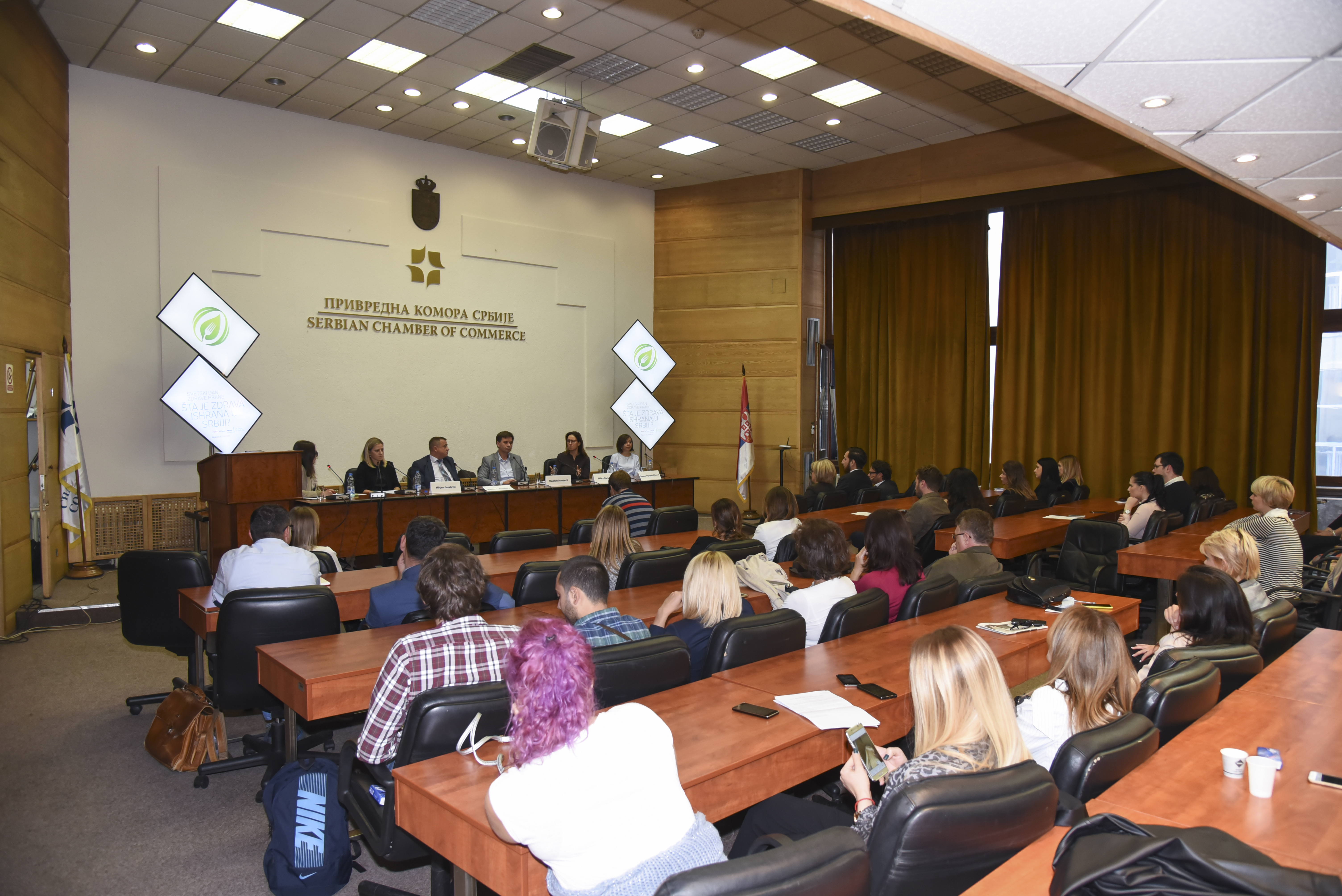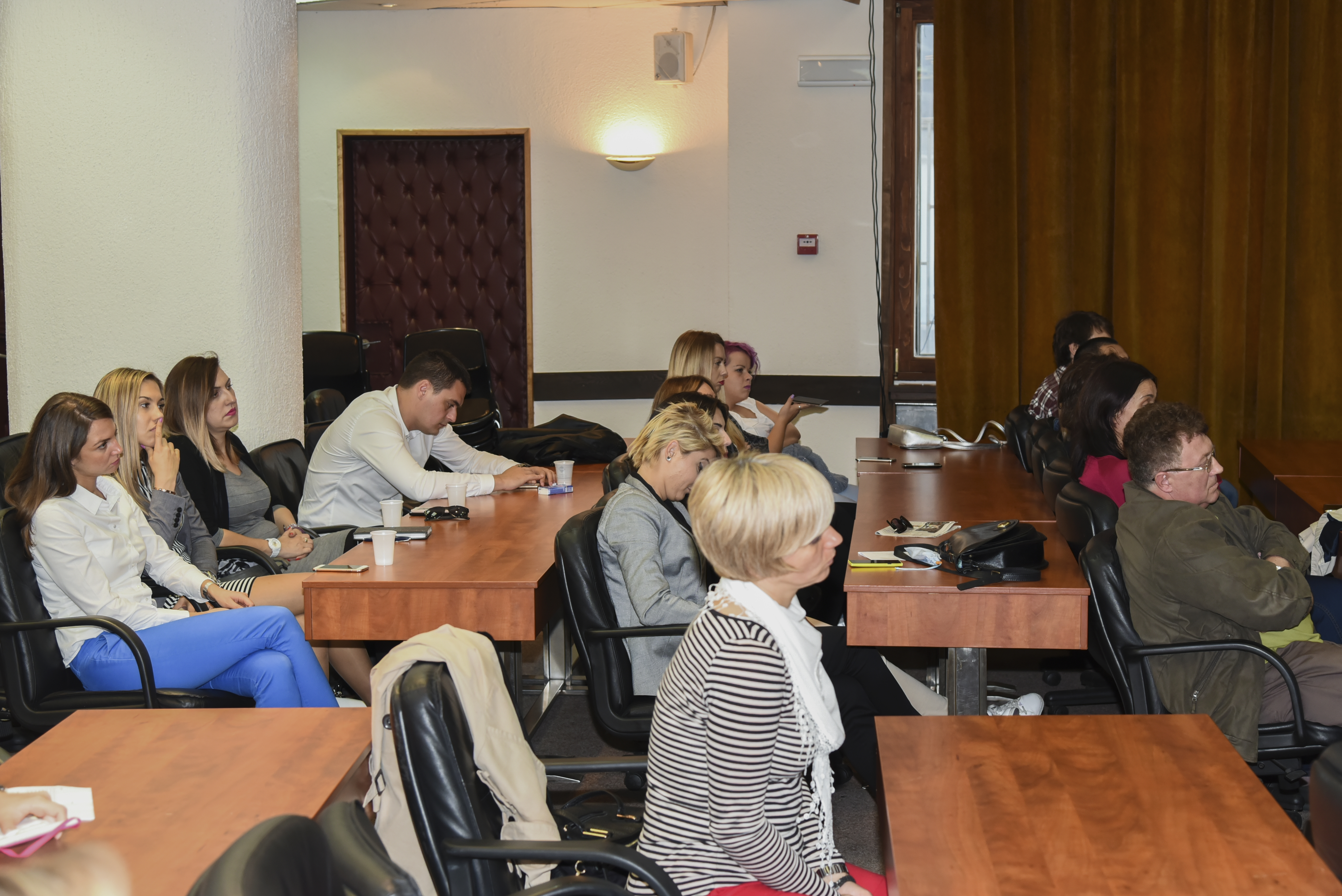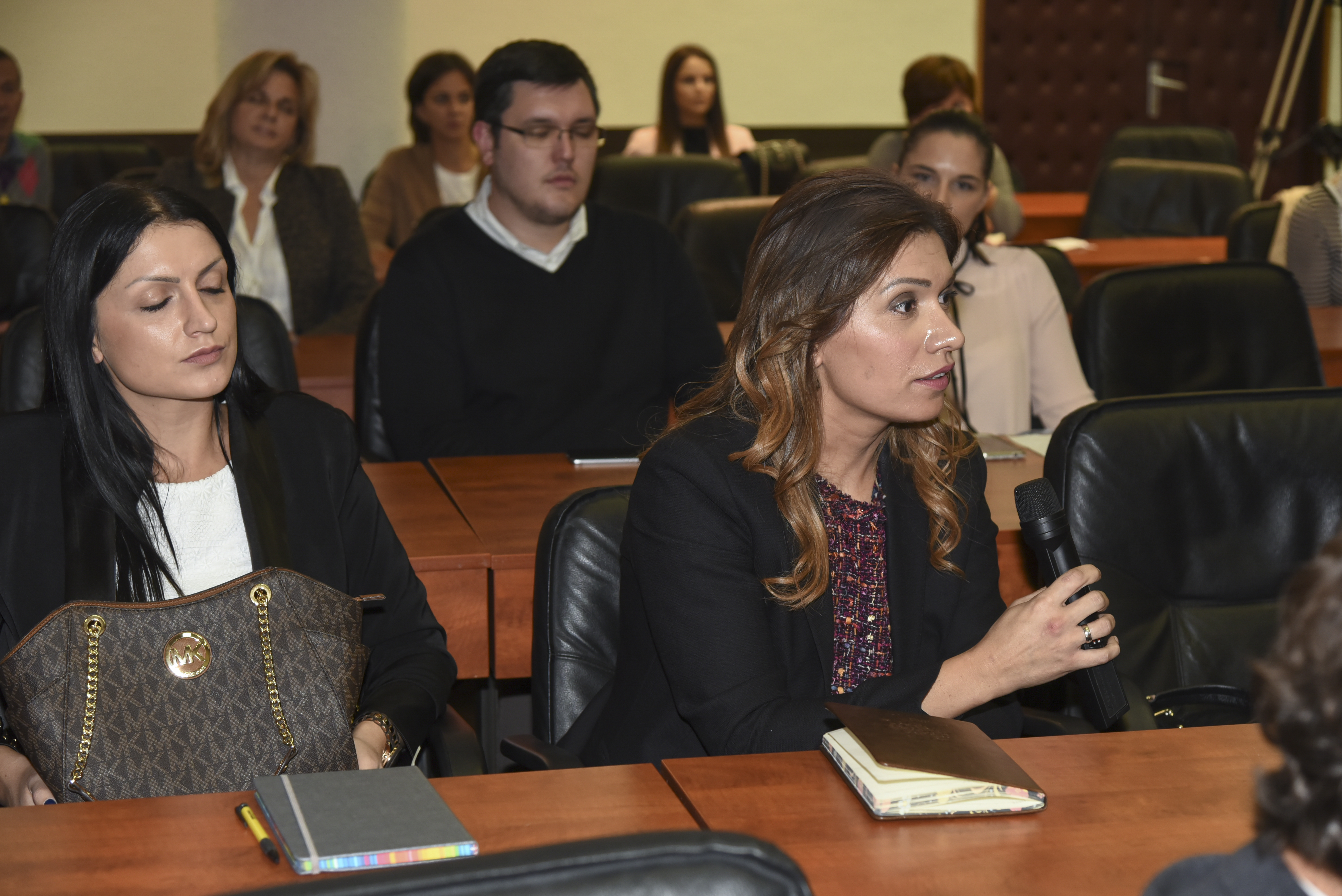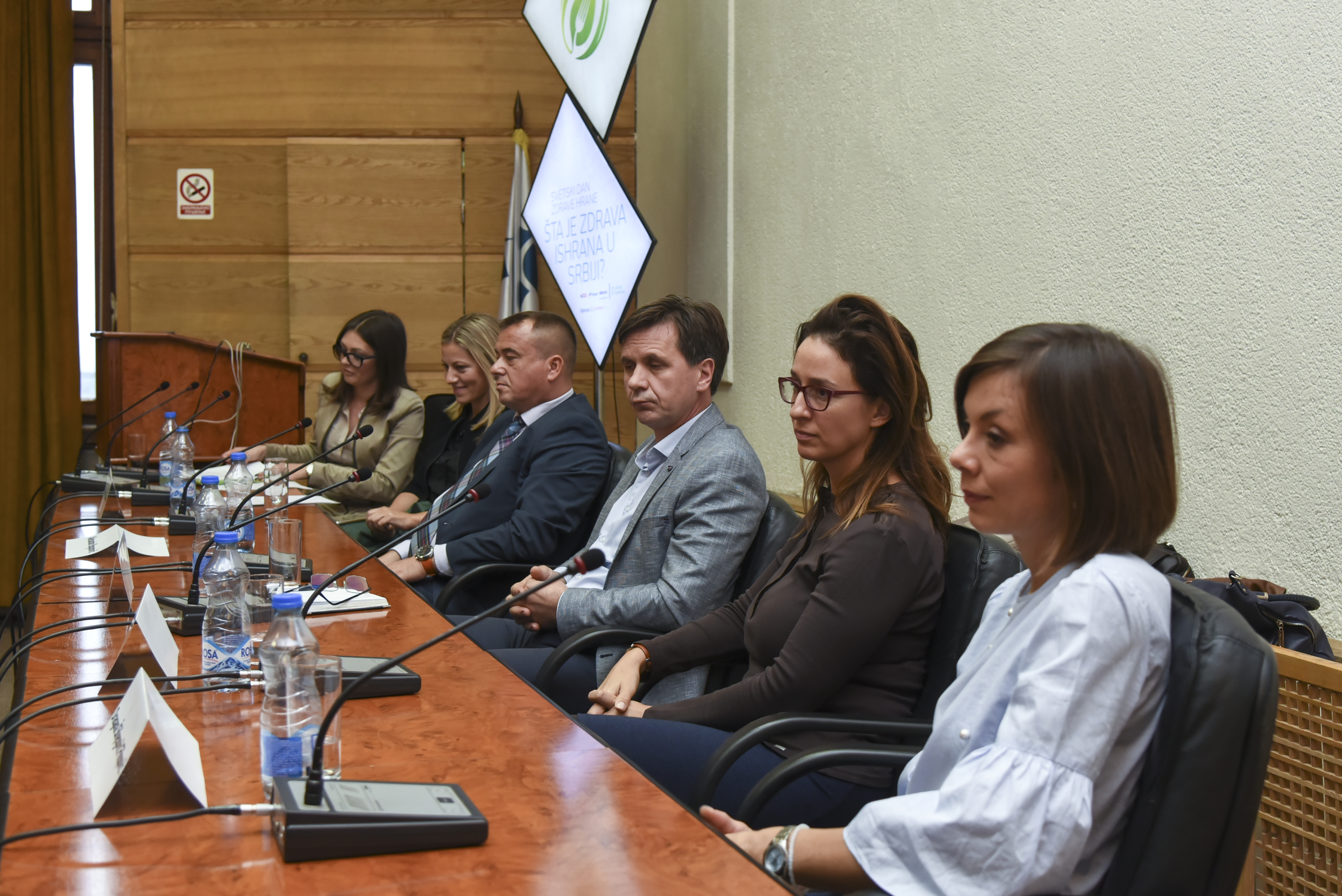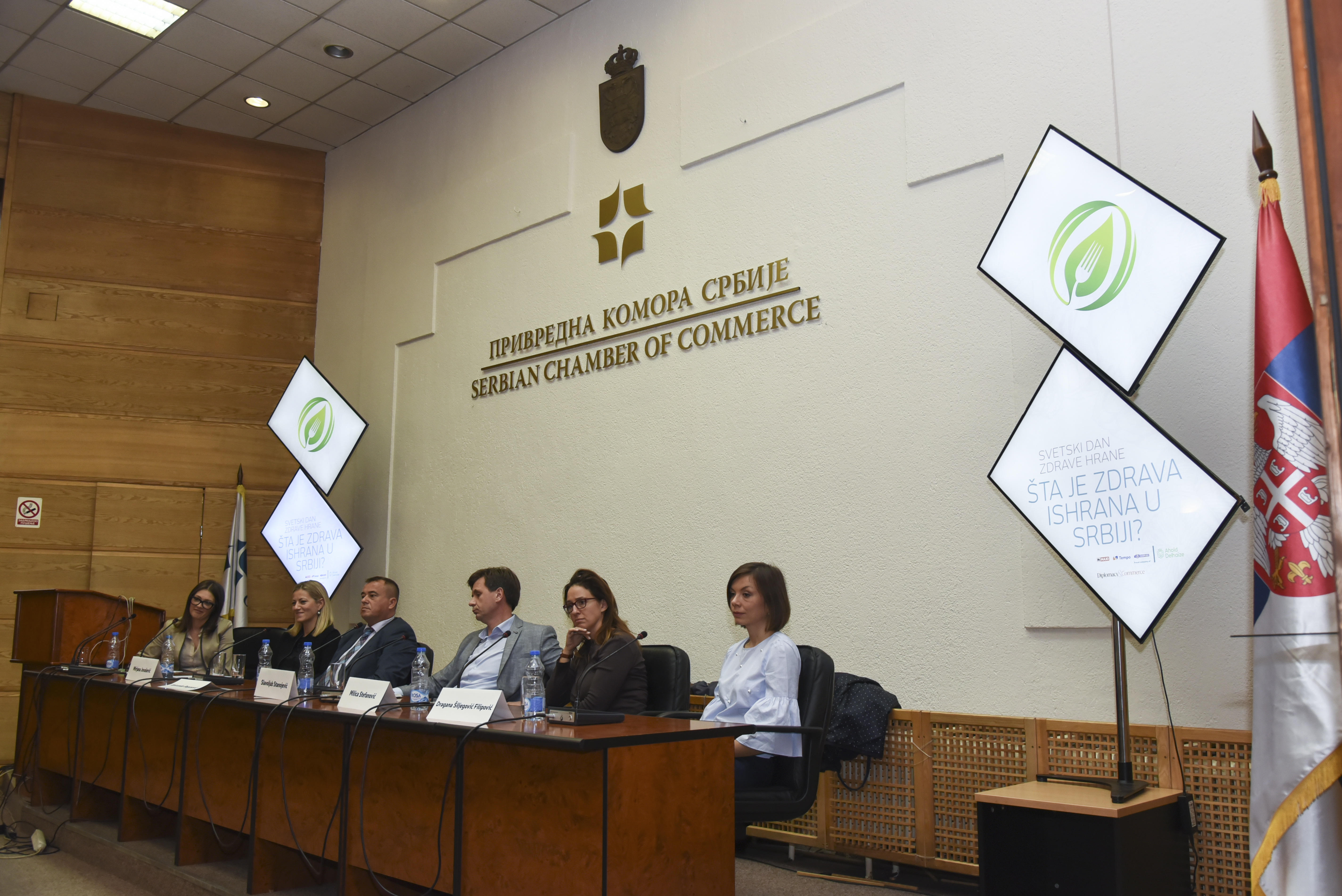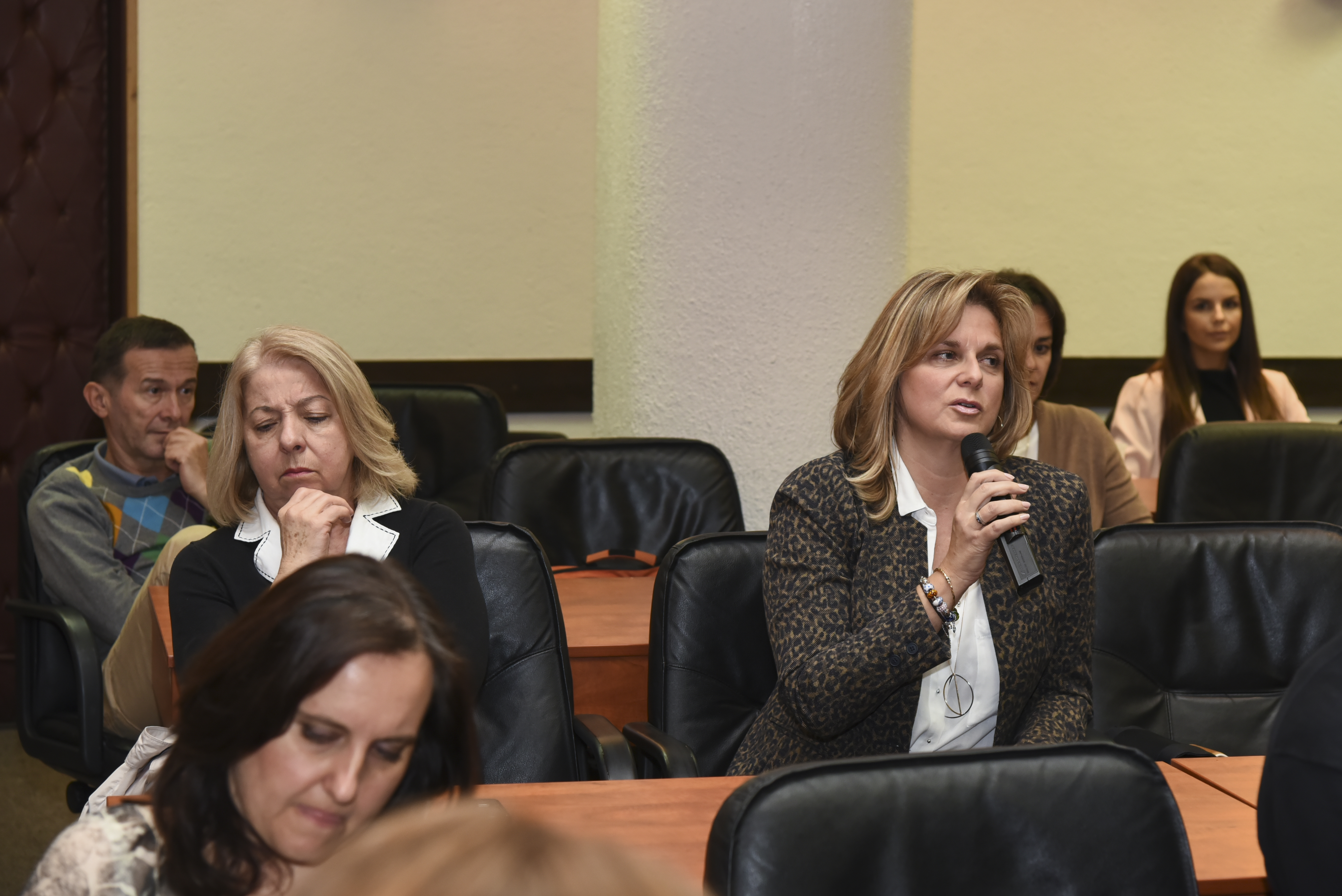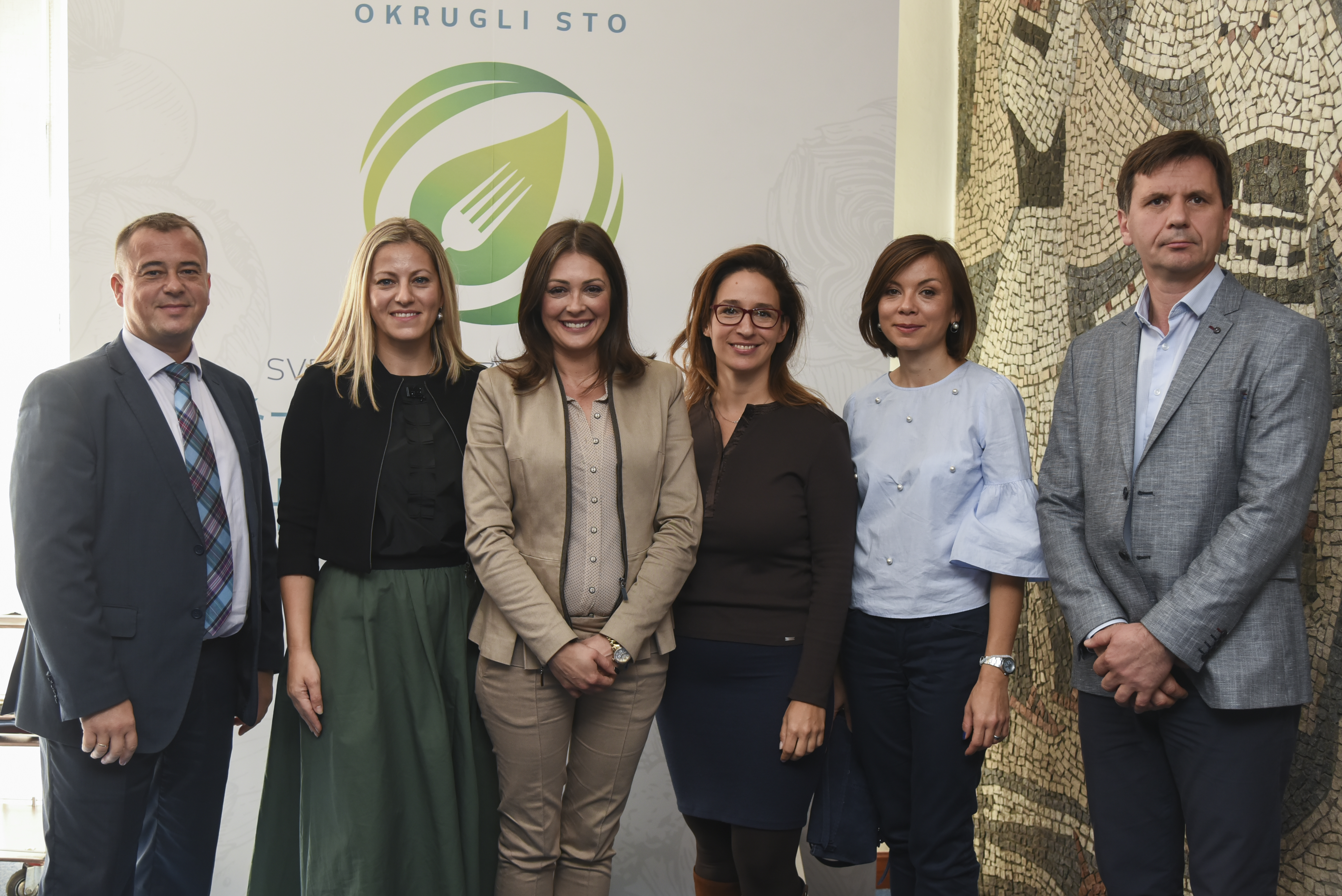On the occasion of the World Health Day, which is celebrated on October 16th, a round table was held in the Serbian Chamber of Commerce on the topic “What is healthy food in Serbia” organised by the magazine “Diplomacy & Commerce”, where local experts from different fields and activities of production, distribution and certification of food. The participants of the round table were Slavoljub Stanojević, vd. Director of National Reference Laboratories, Aleksandar Bogunović, Deputy Director of Agriculture, Chamber of Commerce of Serbia, Mirjana Jovašević, Director of Corporate Communications, Delhaize Serbia, Milica Stefanović, Senior PR and Communications Manager, Coca-Cola Company / Agriculture of the Council of Foreign Investors and Dragana Šiljegović Filipović, nutritionist.
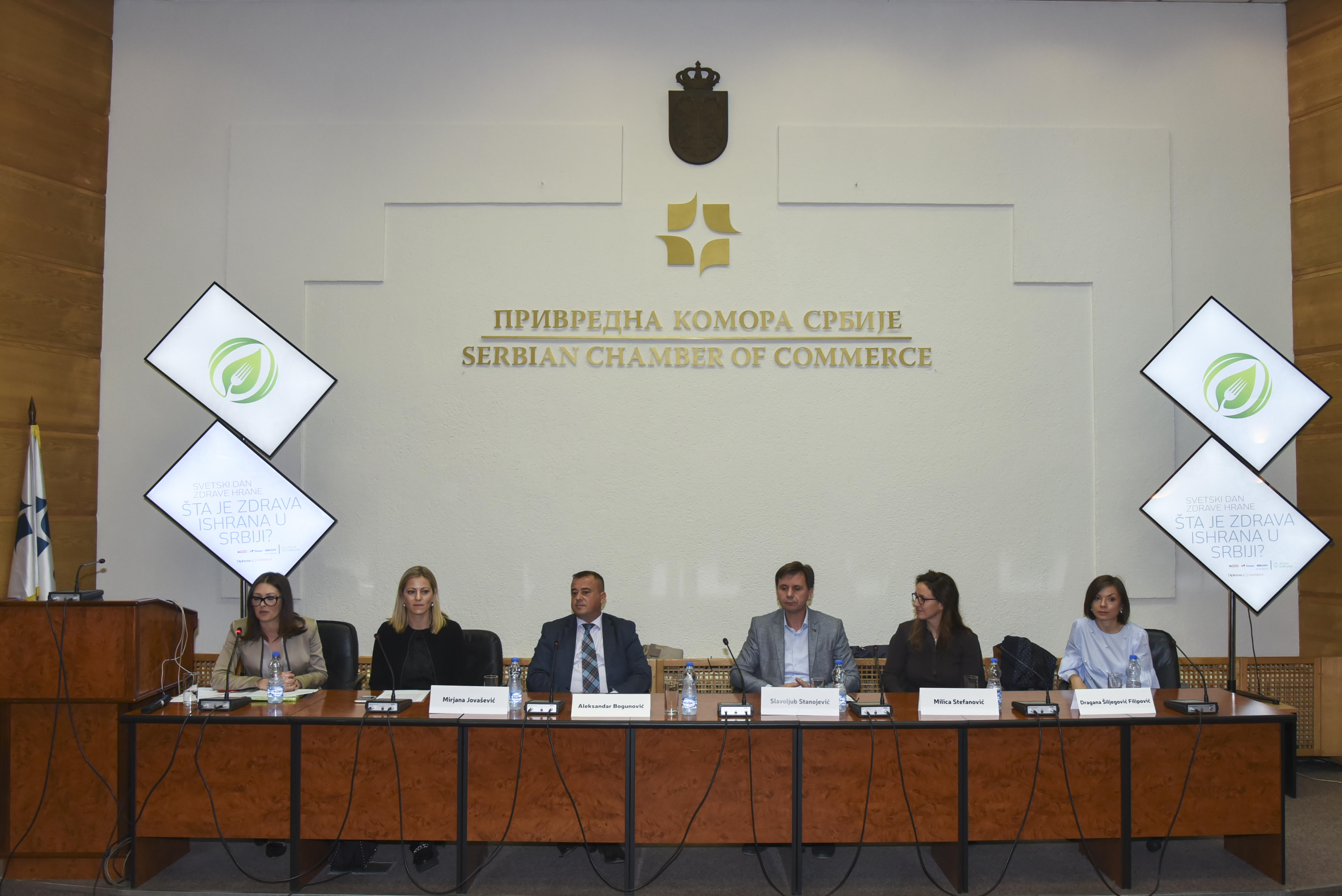
Round table moderator, Ruža Ristanović, director of the magazine “Diplomacy & Commerce”, spoke with participants of the discussion on consumer education, about what is healthy food choice, regulations in this field, the role of retail chains in public health education, how important it is to read declarations, which food is safe and what kind of foods are offered on the market…
Discussion on this topic started by nutritionist Dragana Šiljegovic Filipović, who believes that education system in our country is not good and that educational and health institutions should be included.
“I think that education on healthy nutrition should start from kindergarten, and the whole process should involve parents, because the most important representations and habits we acquire at the earliest age are those that we will adhere to and later in life” she said.
“Although a large number of healthy foods can be purchased in our market, citizens generally do not know how to recognise them, they do not understand what is said on the declaration, and are not informed how to use them in the right way. Many consumers believe that it is enough to eat fruit or vegetables, but this is not enough, and the second problem is that nowadays, in a trend, it is fed up with one type of food, or eating out of one type of food. The truth is, we should actually feed diversely so that we can eat healthy, says a nutritionist.
The nutritionist pointed out that our country is at the very top of chronic diseases, and one of the culprits for this is poor nutrition and bad habits.
“We are witnessing an extremely large number of obese children. I recently paid attention to schools in my area. Near each one there is a bakery in which children buy the snacks and what they buy is mainly a pizza or some other sour dough that does not contain absolutely anything healthy in itself. It is rare for parents to pack children a healthy meal, and then we have cases that the other childer tease the children in schools if they choose to eat healthy” Dragana says.
Aleksandar Bogunović, deputy director of the agriculture sector, the Serbian Chamber of Commerce, asked how important it is to engage in education and what the state should do, explaining that the state has several types of inspections that are taking care of what is prescribed by law in practice as well.
“Ministries and inspections are doing a good job, and according to previous experience, we can safely say that food in Serbia is safe for use and it is regularly controlled, but whether that food is healthy at the same time, it’s a completely different matter,” he said. .
How can consumers be protected and what producers can do and how to contribute to proper and healthy eating? Milica Stefanović, senior PR and Coca-Cola Corporate Communications Manager and chairman of the board for food and agriculture of the Foreign Investors Council tried to explain this.
“It is necessary for the consumer to understand the product declaration and what is offered to it, what it provides, its nutritional value and the like, and that is what manufacturers can contribute to education,” said Milica, emphasising that apart from education, change in life habits is a key factor, but also the hardest part, and that only it gives a long-lasting positive result.
Slavoljub Stanojević, Director of the National Reference Laboratory Directorate, Ministry of Agriculture, spoke about the importance of the state doing everything in its power and to ensure quality control.
“The state should provide enough cheap but safe food. However, the state cannot do it alone if agriculture and science do not participate in the process. Also, the state must ensure that the food that is produced is regularly controlled, but Serbia lacks a reference laboratory that would oversee the work of other laboratories for food quality control”, said Slavoljub, and then spoke about the use of pesticides and all the dangers and risks that this practice carries with him.
“When it comes to pesticides, they are necessarily evil.” “We need to feed eight billion people in the world, and there is ever less farmland.” Therefore, pesticides must be used, it is only important that they are used in prescribed quantities” he said and explained that consumers can only be protected by purchasing food at the places that are foreseen for it, because only in this way do not expose the risk of entering unauthorised substances.
“Grocery in markets, grocery stores and markets is being monitored regularly, but no one can guarantee you the quality of the food you buy with someone who sells them on the truck by the road” he said, adding that there are occasional occasions that some foods have a higher amount of certain things than allowed, but “it’s not terrible” – stressed Stanojević.
The fact is that every citizen wants the best for themselves and their family, but how much consumers pay attention to what is said on the declaration, explained Mirjana Jovašević, director of corporate communications of Delhaize Serbia
“Our company tested on a sample of 1,000 buyers how many percent of them read the declaration on the packaging, and it turned out that merely four out of ten customers read the declaration. However, 27 percent of them do not care, 26 percent think that this is important information, but only five percent of buyers take care of what is written on the packaging when buying” Mirjana said and emphasised that the big problem and the barrier of healthy diet are the belief that healthy food is expensive and not tasty, and that a healthy meal is difficult and complicated to prepare. Therefore, as Mirjana points out, it is very important to make it easier for consumers to explain how to eat healthier, where they can find adequate and convenient foods, as well as recipes for healthy meals.


